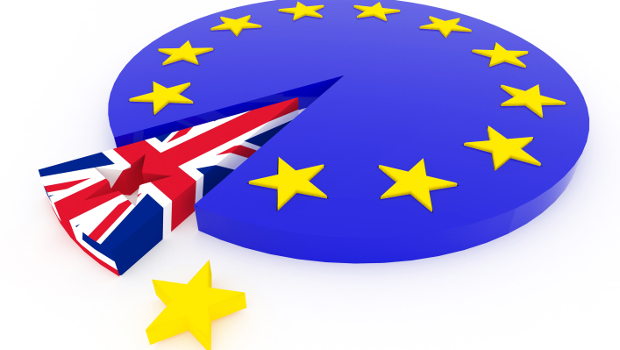
The graceless exit
With the tragi-farce of Brexit on the verge of entering its third year with no clear end in sight, what steps have Irish IT businesses been taking, if any, to prepare themselves for the consequences of a UK exit from the EU, and have there been any noticeable effects on Irish IT companies as a result of the endless convolutions over Brexit? We asked around.
Peter Rose, Tekenable
“People were fed a load of rubbish from both sides during the referendum,” Rose says. For what it’s worth, he believes the UK could still crash out of the EU if Theresa May “loses what little control she has. Johnson or someone of his ilk will get elected”.
Tekenable is not as exposed to the UK market as other businesses, but Brexit has had an impact. The company had been looking at opening up an office in Northern Ireland but has postponed its plans.

Rose says uncertainty has not just led people “to pull back on spending”, it has also had implications for simple things which are making it “just a little bit harder to do business”. For example, as he lives in Drogheda, Brexit could make it more difficult to drive to Belfast if he had opened a premises in Northern Ireland.
Just before the 12 April deadline for a potential hard Brexit – a deadline which has since been revised to the end of October – Rose had been due to go to a security conference. As a UK passport holder, he was not sure what the implications would have been if he tried to return to Ireland after the 12 April deadline. “I didn’t know if I was able to go,” he admits. “If that had been a business meeting, it would have been a huge drag on the relationship between the two companies. If you multiply that across the whole of EU, it would have created a huge drag on business.”
But Tekenable has also gained business from Brexit, Rose reveals, by winning projects “that are specific to Brexit, they’re projects the companies would not have done otherwise”. In fact, Tekenable has “managed to grow partly on Brexit”.
“Tekenable has also gained business from Brexit by winning projects that are specific to Brexit — they’re projects the companies would not have done otherwise. In fact, Tekenable has managed to grow partly on Brexit”
One contract involved working on animal movement in the event of a hard Brexit. With the UK often used as a land bridge for animals moving between Ireland and Europe, the implications of a hard Brexit could be potentially devastating. The project involved working on veterinary clearance, passporting and other issues to ensure the movement could continue even if there was a hard Brexit.
Tekenable has also done some work in the logistics space, looking at a hard border, how it might operate and how clients could traverse it more effectively. “That’s really important in terms of animal movement because there’s a whole welfare aspect to it,” Rose observes. “If you’re detaining animals at ports for longer periods of time, there’s a whole welfare aspect, as well as the time and cost.”
He says it’s sensible for Irish businesses “to look at their supply lines and market diversification, to plan for worst case outcomes as they would plan for fire and flood. A hard Brexit is a similar thing, neither event is inevitable but it could have enough impact that it can’t be ignored”. In any case, it doesn’t hurt to look at those issues at any time.
Rose adds that Irish businesses might take the opportunity to look beyond the UK for business. “The opportunities to sell IT services are pretty broad across Europe,” he says, noting that Tekenable has recently had meetings in The Hague and Paris.
“Even smaller companies have opportunities in Europe,” he believes. “We are very pampered because English is the language of commerce, you can land in any European country and have a business conversation in English.”
While there is a familiarity and comfort in conducting business in the UK and the travel time is a little shorter, “it’s not necessarily any better a place than the rest of the EU. And there might be a little bit of an opportunity in looking at Europe from Ireland on what services the UK was able to provide and is no longer going to be able to provide competitively if goes out of the EU. It’s just a case of whether people are willing to go out and look for it.”
Brian Doherty, managing director, Atlantic Hub
Doherty believes that by developing sites in the UK and Ireland, Atlantic Hub is positioning itself ideally for organisations operating in both, or either, jurisdiction, regardless of the outcome of the changing and unpredictable Brexit landscape.
“What we are most concerned about is business continuity for our clients,” he says. For Atlantic Hub, it is important to deliver “a seamless scenario” with the flexibility to “ensure highly reliable and secure infrastructure that will allow businesses to mitigate the potential obstacles and associated risks of Brexit”.
Doherty argues that the data centre industry can take comfort from the fact that whatever the consequences of Brexit, the data needs and capacity requirements of companies of all sizes are rising exponentially. The data “must be stored and accessed quickly and securely, so it is reasonable to suggest that as usage requirements increase, storage supply must follow, regardless of the jurisdiction,” he says.
“The data needs and capacity requirements of companies of all sizes are rising exponentially. The data “must be stored and accessed quickly and securely, so it is reasonable to suggest that as usage requirements increase, storage supply must follow, regardless of the jurisdiction”
Brian Doherty, Atlantic Hub
Could Brexit make international co-location customers more likely to move their data out of the UK? Doherty acknowledges that “it is a distinct possibility”. But the requirements are bound to be different from company to company. “For some companies it may make more business sense to move their data,” he states, “but for others, holding it in the UK will be more effective”.
Doherty observes that “the Brexit process is highly complex with many moving parts, several of which will not become clear for some time regardless of which scenario comes to pass”. This means the working relationship between the UK and the EU, and particularly Ireland, its closest neighbour, will not become apparent for some time.
But he sees positives as well as negatives: “As appears to be the case with much in Brexit from a business perspective, there is certainly risk but also opportunity. We are confident we have mitigated the risk as much as is currently possible and will continue to do so as the process develops.”
Mark Donnellan, sales director, CTI Global
“Brexit is driving uncertainty in the market and most definitely having an impact on decisions locally and overseas,” Donnellan says. “The UK market softened in the first quarter in terms of people making decisions and slowed things down for us, but we see Brexit as a huge opportunity.” CTI Global is involved in a number of large scale projects with UK-based companies where it is building cloud platforms in Irish data centres replicated from the UK because the businesses are taking precautionary action to ensure the data can remain in the EU.
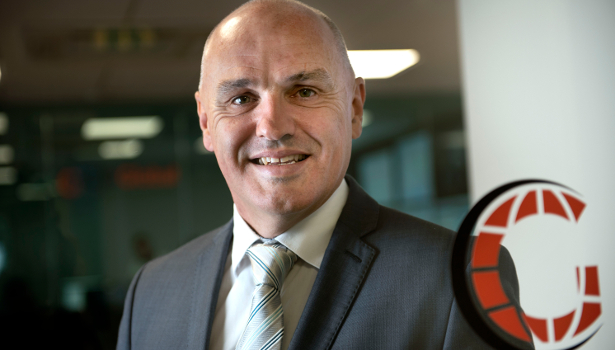
The company has engaged with Enterprise Ireland in London “to see how they can assist us with offering professional services we provide to enable UK companies to keep a foothold in Europe”. CTI Global has invested heavily in its UK operation which, until a few months ago was “relatively low key”. Over the last six months, it has hired people and set up sterling bank accounts to mitigate against any potential VAT fall out or issues with suppliers in UK that may not be able to sell into the Irish market. It is “actively looking for an acquisition in the UK to scale that business up.”
Enterprise Ireland is also helping the company to review its operational services and data centre business, “to see how we can scale up to support increased business from UK. To a degree we are betting on Brexit,” Donnellan concludes, “but we’re not betting the house”.
Diarmuid Shanley, CFO, EMR
A hard Brexit could be very complicated for EMR which imports about 50% of its equipment from the UK and generates 50% of its turnover in the UK and Northern Ireland, Stanley reveals. “It’s not insurmountable but it would make business more complicated for us. Every time we cross the border, we would be importing and exporting. It’s a hard thing to plan for because there’s no clear picture of what it will look like. It’s proving very difficult to plan in an environment where nobody knows what’s going to happen.”
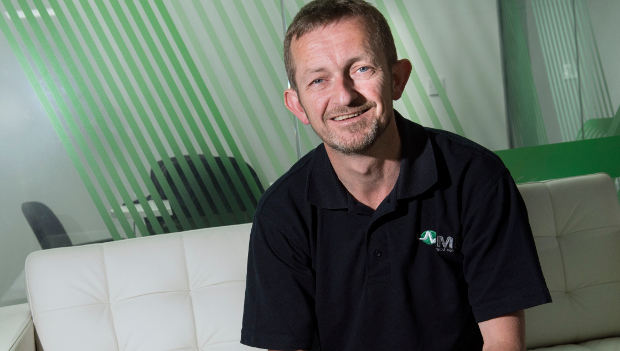
It doesn’t help that it “keeps going to the brink. There could be a hard exit tomorrow and it could just happen like that. We have already passed two dates when there should have been a hard exit, but at any time the UK could say we want a hard exit”.
In common with most people in Ireland watching it from the outside, “you keep thinking logic will prevail because it makes no sense and it isn’t in their interest, but the reason a hard exit can happen is it’s more to do with the fact they can’t agree on anything and the default position is a hard exit”.
Lead times will change completely, Stanley says, and EMR will “have to start increasing stock levels because if everything has to be cleared through customs, it’s going to take longer. The administration is going to be awful, if you have a technician driving up to Northern Ireland to fix something and he is taking equipment in the vehicle, he could be exporting it to the UK and then importing it into the UK. There are systems to fast track the documentation but the documentation still has to be done. You’re talking about at least one additional person in administration.”
He argues that companies don’t really have a choice “not to prepare for a hard exit, it’s too important because it could devastate a lot of businesses if they are not prepared. But you also have to carry on with business as usual, you can’t let it become something that prevents you carrying on business as usual”.
In terms of everyday business, EMR has tendered for contracts in UK and won some in the last two years and it has had to make commitments that it can guarantee prices in the event of Brexit, irrespective of the currency fluctuations which are likely to follow in its wake.
The company has put down “an awful lot of groundwork in the UK, so it would be very hard to walk away. It has enormous potential and it’s fundamental to the next part of our development. We don’t view any challenges as insurmountable. There are a number of headaches for us to deal with and we will. If it means opening up an office in the UK, we will do that.”
Jennie Greene, account director, Westcon
“Brexit is the one thing that potentially affects every partner in some way, yet it’s not the hot topic in daily business-related conversations like it is in other fields,” Greene remarks. “Most partners have considered possible scenarios and we talk about ‘when’ and even ‘if’, but the one thing that will focus every mind is ‘what’. That is the catalyst for serious action and only a no-deal, which is supposedly not an eventuality, will have immediate consequences given the two-year transition period already agreed.”
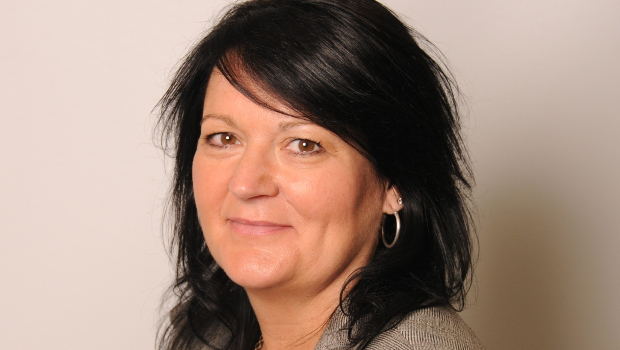
She says the impact of a no-deal scenario depends on the nature of the supply chain for the technologies that a partner sells and services. Westcon has “prepared for all likely outcomes”, Greene claims. If it is a no-deal, the effect on Ireland should not be too drastic because Westcon’s distribution centre is in the Netherlands and it ships to Ireland and prices in euros. “So, essentially, aside from a small amount of admin there is no impact, as we will be maintaining an intra-EU trade,” she states.
But partners with UK-based customers and suppliers could suffer from a much greater impact. “Again though, my experience is that until we are clear about what is going to happen and when, partners are primarily focused on their customers, while keeping a watching brief on developments,” Greene concludes.
Philip McMichael, managing director, AMI
Concerns arising from the uncertainty over Brexit have caused significant disruption across all sectors, McMichael acknowledges. “Without a clear picture of what is going to happen and so much uncertainty still remaining, it is difficult for organisations to effectively prepare and plan for the future,” he adds.
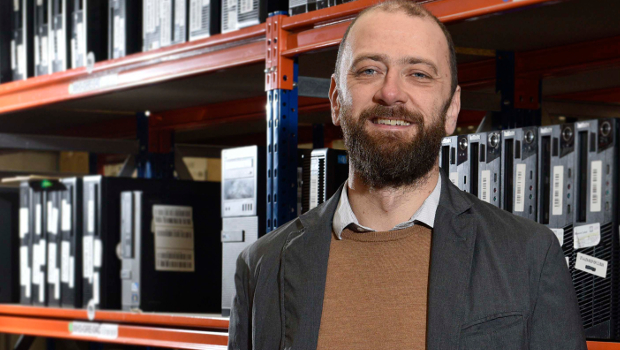
He accepts that “nobody knows what exactly is going to happen” but companies still need “to take some steps to adapt and safeguard the way they do business. I think it’s also important to stay positive and I try to see Brexit as a potential opportunity for AMI, as opposed to a problem”.
Despite all the uncertainty, he believes that AMI “has a certain level of security and a solid footing in the market with bases in both Dublin and Belfast”.
He is confident that no matter what happens with Brexit, AMI “will continue to have a presence in and do business with our customers on both sides of the border. Furthermore, at the end of the day, IT security will still be a top priority for our customers and there will continue to be a high demand for our services”.
Michael Conway, director, Renaissance
For an importing distribution business like Renaissance, Brexit is “annoying and frustrating”, Conway says. “With a lot of the principal companies we deal with, we’re dealing through their UK subsidiaries. That will have to change. From an accounting point of view, we will have to deal with the EU subsidiary because we don’t want to take the VAT hit”.

Like Donnellan, he has noticed an effect on UK companies that Renaissance deals with: “The UK economy is slowing right down because decisions are not being made.”
How Renaissance handles Northern Ireland is “a very good question. We’re in Belfast regularly so we need to make sure we have green cards, so we’ve done that. It’s nonsensical, but it has to be done.”
There is a great deal of uncertainty and unpredictability “even at an operational level. For example, we have had to make sure that nobody is driving on business here on a UK licence”.
Conway says that “currency fluctuation has been a challenge. Doing business in a volatile environment is a bad time to do business. Unpredictability is the one thing businesses don’t need. It takes a lot of mindshare and it’s wasting a lot of people’s time.







Subscribers 0
Fans 0
Followers 0
Followers